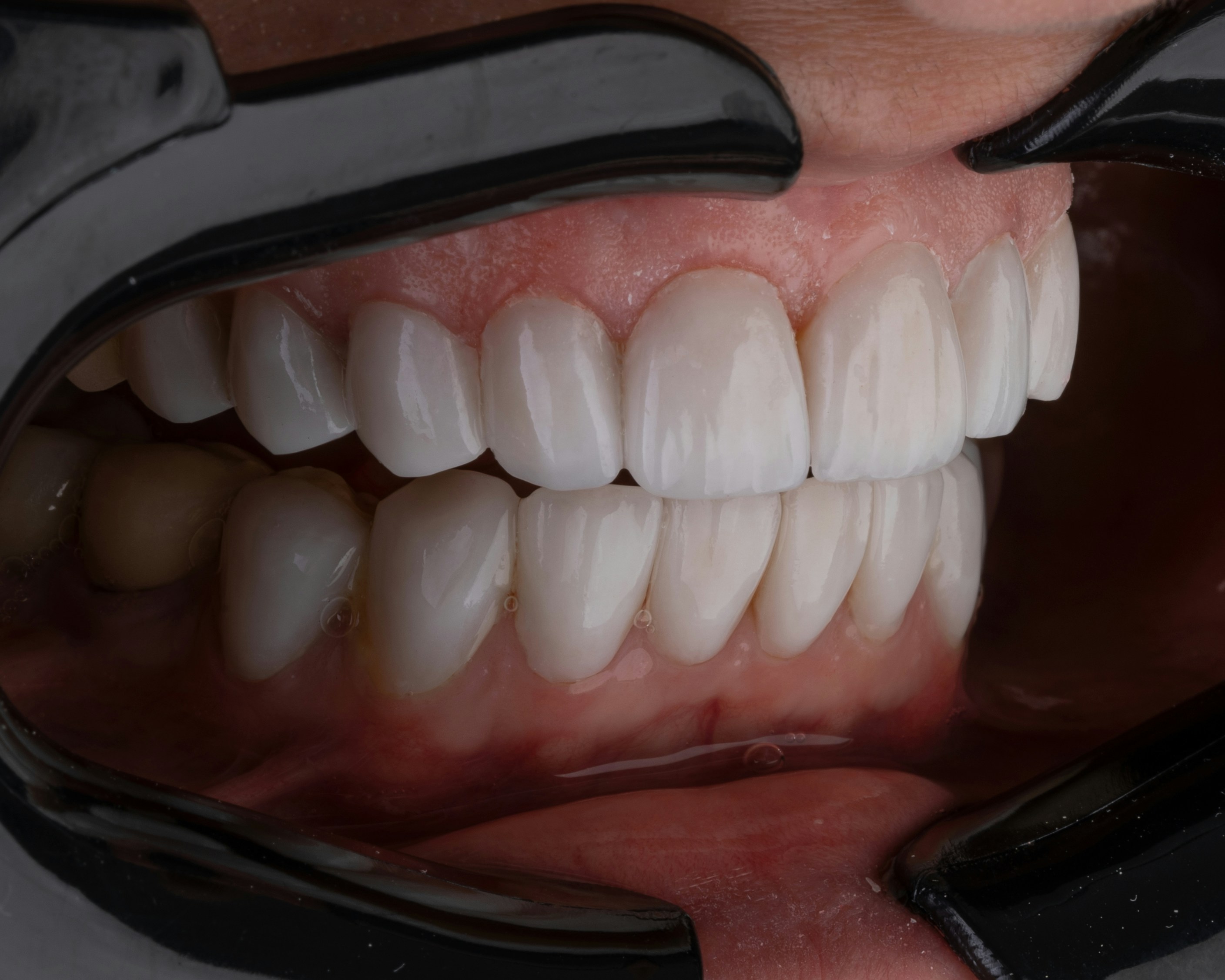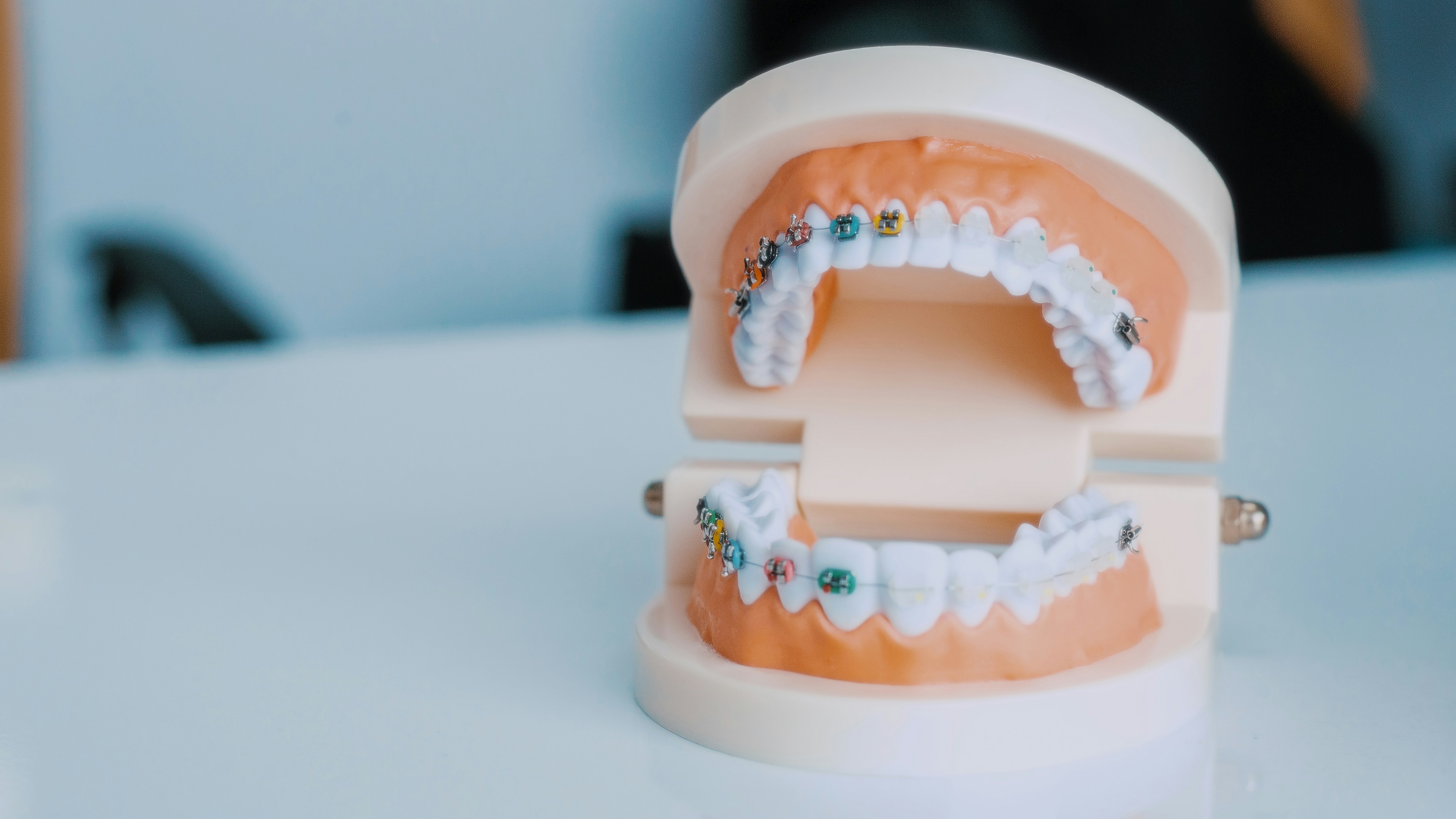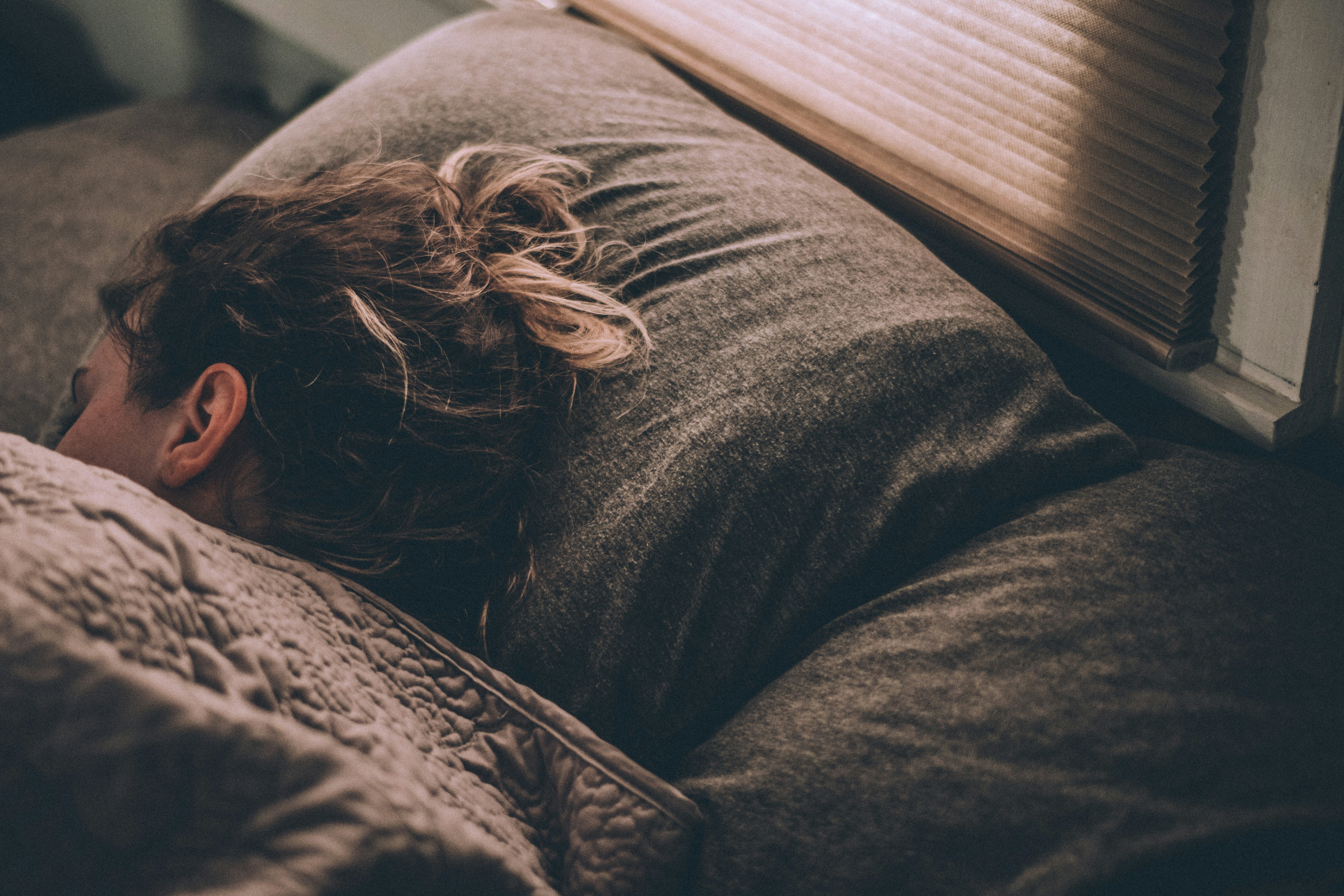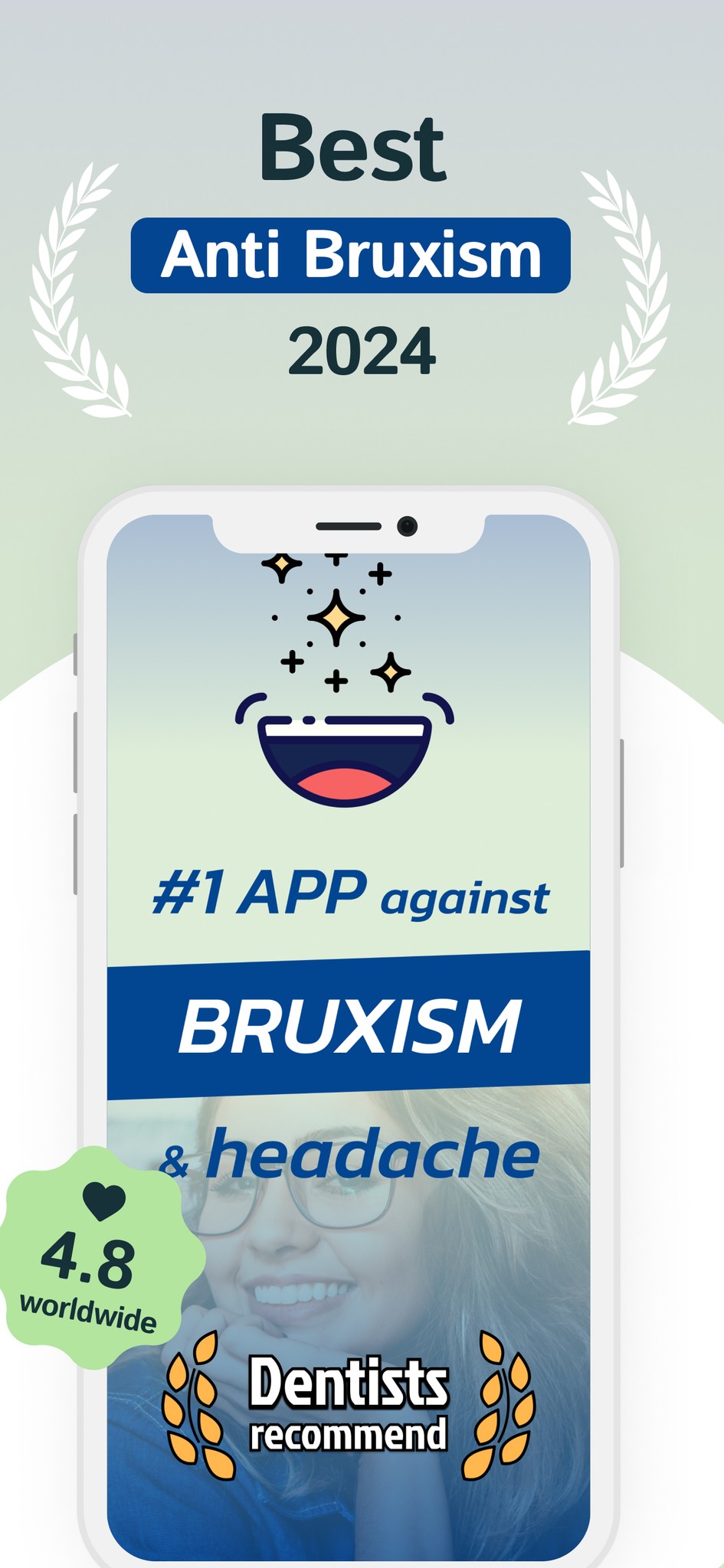
Feb 28, 2024
How to Stop Teeth Grinding at Night: Tips for Managing Bruxism
Teeth grinding, also known as bruxism, is a common condition that occurs during sleep and can lead to headaches, jaw pain, and even damaged teeth. While the exact cause of bruxism varies, it’s often linked to stress or misaligned teeth. The good news is that there are ways to manage and prevent teeth grinding at night. In this post, we'll explore some effective strategies, including how the Bruxism+ app can help you track and manage your symptoms.
Identify the Causes of Your Bruxism
Understanding what triggers your teeth grinding is key to managing it. Common causes include:
High levels of stress or anxiety
Misalignment of teeth (malocclusion)
Sleep disorders such as sleep apnea
Lifestyle factors like alcohol or caffeine consumption
By identifying the potential causes, you can better tailor your treatment plan and prevent further damage to your teeth.
Use a Night Guard for Protection
One of the most effective ways to prevent teeth grinding at night is by wearing a custom night guard. This dental appliance acts as a barrier between your upper and lower teeth, minimizing the damage caused by grinding.
Night guards can be obtained from your dentist or purchased over the counter. If you’re unsure which option is best for you, the Bruxism+ app can provide tips and advice on choosing the right night guard.
Reduce Stress with Relaxation Techniques
Since stress is a leading cause of bruxism, incorporating relaxation techniques into your routine can help reduce nighttime grinding. Here are some methods to try:
Meditation: Spend 10-15 minutes practicing mindfulness before bed.
Deep breathing exercises: Slow, controlled breathing can help calm your nervous system.
Jaw exercises: Using exercises suggested in the Bruxism+ app, you can relax tense jaw muscles and relieve stress before sleep.
Regularly practicing these techniques may not only reduce stress but also lessen the frequency of teeth grinding at night.
Create a Relaxing Bedtime Routine
A consistent, relaxing bedtime routine can signal to your brain that it’s time to wind down. Here are some things you can try:
Avoid screens (TV, phone, etc.) an hour before bed.
Drink a warm, caffeine-free tea like chamomile.
Use the Bruxism+ app to record your bruxism symptoms, which will help track progress over time and remind you to practice relaxing jaw exercises.
By incorporating these practices, you can create a peaceful environment that encourages restful sleep and reduces the likelihood of bruxism.
Monitor Your Symptoms with Bruxism+
Tracking your symptoms is crucial for managing bruxism effectively. The Bruxism+ app makes it easy to log when and where you experience pain, as well as the severity of your symptoms. By regularly updating your symptom log, you’ll be able to identify patterns and adjust your management plan accordingly.
Additionally, the app offers a variety of exercises to help relax your jaw and reduce pain associated with bruxism. Over time, this proactive approach can significantly reduce the frequency of teeth grinding at night.
Conclusion
Teeth grinding at night can cause a range of issues, from discomfort to long-term dental problems. However, with the right combination of techniques, you can reduce the frequency and intensity of bruxism. Be sure to monitor your symptoms, reduce stress, and create a relaxing bedtime routine. Tools like the Bruxism+ app can make the management process easier by offering tailored exercises and symptom tracking to help you manage your condition more effectively.
Teeth grinding, also known as bruxism, is a common condition that occurs during sleep and can lead to headaches, jaw pain, and even damaged teeth. While the exact cause of bruxism varies, it’s often linked to stress or misaligned teeth. The good news is that there are ways to manage and prevent teeth grinding at night. In this post, we'll explore some effective strategies, including how the Bruxism+ app can help you track and manage your symptoms.
Identify the Causes of Your Bruxism
Understanding what triggers your teeth grinding is key to managing it. Common causes include:
High levels of stress or anxiety
Misalignment of teeth (malocclusion)
Sleep disorders such as sleep apnea
Lifestyle factors like alcohol or caffeine consumption
By identifying the potential causes, you can better tailor your treatment plan and prevent further damage to your teeth.
Use a Night Guard for Protection
One of the most effective ways to prevent teeth grinding at night is by wearing a custom night guard. This dental appliance acts as a barrier between your upper and lower teeth, minimizing the damage caused by grinding.
Night guards can be obtained from your dentist or purchased over the counter. If you’re unsure which option is best for you, the Bruxism+ app can provide tips and advice on choosing the right night guard.
Reduce Stress with Relaxation Techniques
Since stress is a leading cause of bruxism, incorporating relaxation techniques into your routine can help reduce nighttime grinding. Here are some methods to try:
Meditation: Spend 10-15 minutes practicing mindfulness before bed.
Deep breathing exercises: Slow, controlled breathing can help calm your nervous system.
Jaw exercises: Using exercises suggested in the Bruxism+ app, you can relax tense jaw muscles and relieve stress before sleep.
Regularly practicing these techniques may not only reduce stress but also lessen the frequency of teeth grinding at night.
Create a Relaxing Bedtime Routine
A consistent, relaxing bedtime routine can signal to your brain that it’s time to wind down. Here are some things you can try:
Avoid screens (TV, phone, etc.) an hour before bed.
Drink a warm, caffeine-free tea like chamomile.
Use the Bruxism+ app to record your bruxism symptoms, which will help track progress over time and remind you to practice relaxing jaw exercises.
By incorporating these practices, you can create a peaceful environment that encourages restful sleep and reduces the likelihood of bruxism.
Monitor Your Symptoms with Bruxism+
Tracking your symptoms is crucial for managing bruxism effectively. The Bruxism+ app makes it easy to log when and where you experience pain, as well as the severity of your symptoms. By regularly updating your symptom log, you’ll be able to identify patterns and adjust your management plan accordingly.
Additionally, the app offers a variety of exercises to help relax your jaw and reduce pain associated with bruxism. Over time, this proactive approach can significantly reduce the frequency of teeth grinding at night.
Conclusion
Teeth grinding at night can cause a range of issues, from discomfort to long-term dental problems. However, with the right combination of techniques, you can reduce the frequency and intensity of bruxism. Be sure to monitor your symptoms, reduce stress, and create a relaxing bedtime routine. Tools like the Bruxism+ app can make the management process easier by offering tailored exercises and symptom tracking to help you manage your condition more effectively.
Teeth grinding, also known as bruxism, is a common condition that occurs during sleep and can lead to headaches, jaw pain, and even damaged teeth. While the exact cause of bruxism varies, it’s often linked to stress or misaligned teeth. The good news is that there are ways to manage and prevent teeth grinding at night. In this post, we'll explore some effective strategies, including how the Bruxism+ app can help you track and manage your symptoms.
Identify the Causes of Your Bruxism
Understanding what triggers your teeth grinding is key to managing it. Common causes include:
High levels of stress or anxiety
Misalignment of teeth (malocclusion)
Sleep disorders such as sleep apnea
Lifestyle factors like alcohol or caffeine consumption
By identifying the potential causes, you can better tailor your treatment plan and prevent further damage to your teeth.
Use a Night Guard for Protection
One of the most effective ways to prevent teeth grinding at night is by wearing a custom night guard. This dental appliance acts as a barrier between your upper and lower teeth, minimizing the damage caused by grinding.
Night guards can be obtained from your dentist or purchased over the counter. If you’re unsure which option is best for you, the Bruxism+ app can provide tips and advice on choosing the right night guard.
Reduce Stress with Relaxation Techniques
Since stress is a leading cause of bruxism, incorporating relaxation techniques into your routine can help reduce nighttime grinding. Here are some methods to try:
Meditation: Spend 10-15 minutes practicing mindfulness before bed.
Deep breathing exercises: Slow, controlled breathing can help calm your nervous system.
Jaw exercises: Using exercises suggested in the Bruxism+ app, you can relax tense jaw muscles and relieve stress before sleep.
Regularly practicing these techniques may not only reduce stress but also lessen the frequency of teeth grinding at night.
Create a Relaxing Bedtime Routine
A consistent, relaxing bedtime routine can signal to your brain that it’s time to wind down. Here are some things you can try:
Avoid screens (TV, phone, etc.) an hour before bed.
Drink a warm, caffeine-free tea like chamomile.
Use the Bruxism+ app to record your bruxism symptoms, which will help track progress over time and remind you to practice relaxing jaw exercises.
By incorporating these practices, you can create a peaceful environment that encourages restful sleep and reduces the likelihood of bruxism.
Monitor Your Symptoms with Bruxism+
Tracking your symptoms is crucial for managing bruxism effectively. The Bruxism+ app makes it easy to log when and where you experience pain, as well as the severity of your symptoms. By regularly updating your symptom log, you’ll be able to identify patterns and adjust your management plan accordingly.
Additionally, the app offers a variety of exercises to help relax your jaw and reduce pain associated with bruxism. Over time, this proactive approach can significantly reduce the frequency of teeth grinding at night.
Conclusion
Teeth grinding at night can cause a range of issues, from discomfort to long-term dental problems. However, with the right combination of techniques, you can reduce the frequency and intensity of bruxism. Be sure to monitor your symptoms, reduce stress, and create a relaxing bedtime routine. Tools like the Bruxism+ app can make the management process easier by offering tailored exercises and symptom tracking to help you manage your condition more effectively.
Our latest stories:


Nov 15, 2024
Dietary Changes That May Help Reduce Bruxism Symptoms


Nov 11, 2024
The Impact of Jaw Alignment on Bruxism: What You Need to Know


Nov 8, 2024
Understanding Sleep Apnea and Its Link to Bruxism
See all posts
Extra
Extra
Extra


